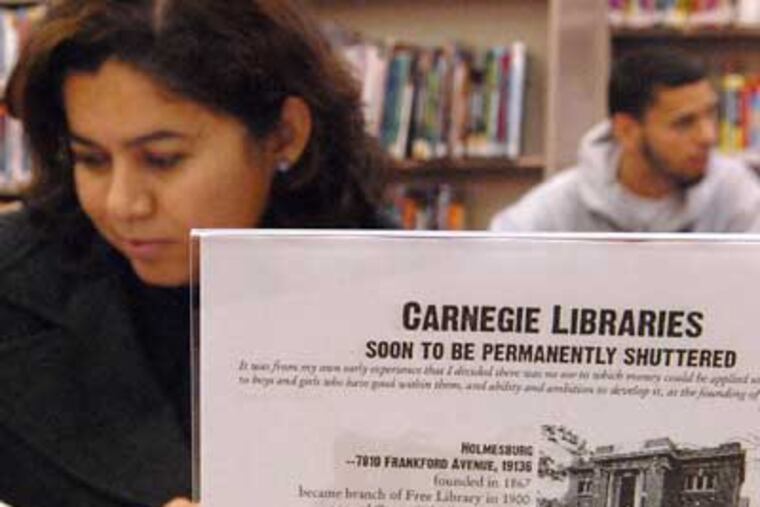Closing Phila. library has unexpected owners
A hand-scrawled deed from 1907 seems to indicate that a little-known 18th-century organization from Northeast Philadelphia will be the owner of the Holmesburg library building after the city shutters it.

A hand-scrawled deed from 1907 seems to indicate that a little-known 18th-century organization from Northeast Philadelphia will be the owner of the Holmesburg library building after the city shutters it.
As of Jan. 1, the building - financed by philanthropist Andrew Carnegie - may well belong to the trustees of Lower Dublin Academy.
What happens to it then is still unknown.
The six-page deed indicates that once the building ceased functioning as a library, its ownership would revert automatically to the trustees.
"The city didn't even know it was ours," said Edwin Moore, vice president of the trustees. "We wouldn't have known ourselves until I looked at the deed a couple of years ago, just for the heck of it."
Mayor Nutter's spokesman, Luke Butler, said questions of ownership were being reviewed by the city's law department.
The academy was a log-cabin school founded in 1794 at the behest of Thomas Holme, a surveyor who worked for William Penn, said Moore. A second iteration of the school was built around 1808 in the same spot and sits abandoned at Willits and Academy Roads (named after the academy), he added.
The school was in Lower Dublin Township, an area of the Northeast that was formed in Penn's time and became part of Philadelphia in 1854, Moore said.
A little more than 50 years later, Carnegie gave money to the city to build the library. The trustees then transferred the land on which to build to the city, Moore said.
"It's kind of neat from a historical perspective," said Karen Lash, president of the Friends of Holmesburg Library. "The trustees still exist and they're still trying to carry out the wishes in the deed. They want to protect the library."
For that, however, there is no deed dictating terms.
Moore said the trustees face a dilemma. While they will be happy to possess the building, they don't have the money to make it a library again.
The trustees could sell it, but that would seem to run counter to the deed's intent.
Besides, Moore said, "I can imagine putting a for-sale sign on the property, then seeing the population rising against us."
While supporters of all 11 imperiled branches fight for their libraries, those connected to Holmesburg believe they have a better argument.
That's because the branch is, even by the city's calculations, a high-functioning institution that doesn't fit most of the Nutter administration's criteria for shuttering.
Acknowledging that, Siobhan Reardon, president and director of the Free Library of Philadelphia, has indicated that she needed to close a library in the Northeast for "equity's sake." Many of the libraries to be shuttered are in the south and west of the city, she said.